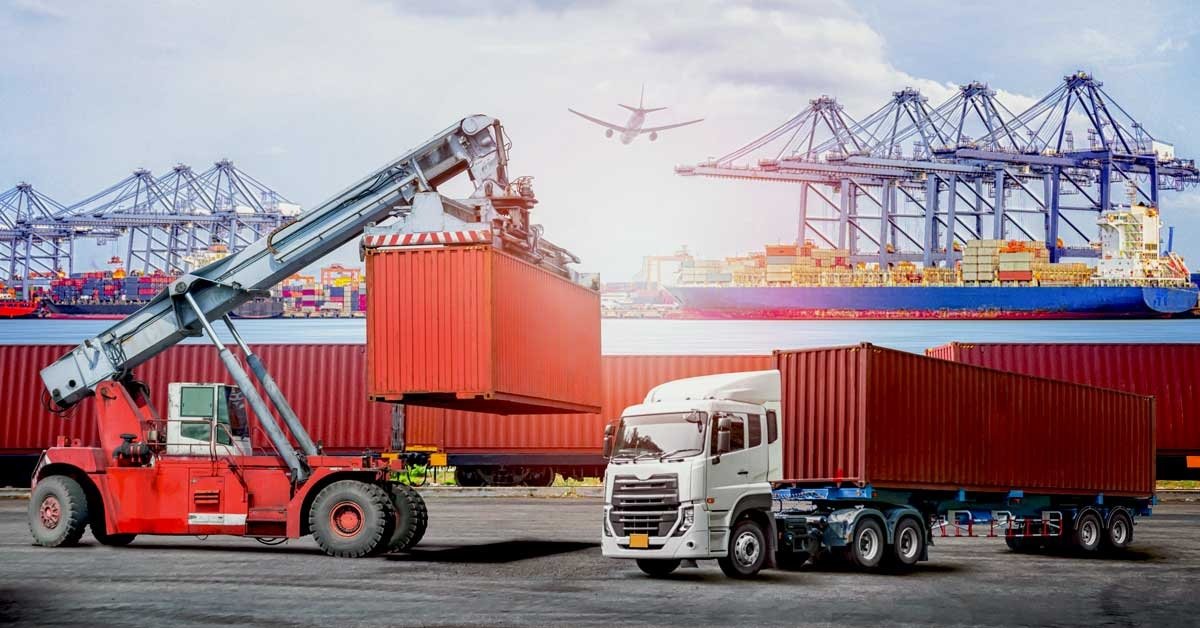
Introduction
In today’s fast-moving U.S. market, wholesalers and distributors play a critical role in connecting manufacturers with retailers and other businesses. However, with rising transportation costs, global supply chain disruptions, and increasing customer expectations, managing logistics has become more complex than ever.
This is where B2B logistics solutions come in. By leveraging technology, third-party providers, and data-driven strategies, wholesalers and distributors can streamline operations, cut costs, and stay competitive.
In this article, we’ll explore how modern logistics solutions in the USA are transforming wholesale and distribution, the challenges businesses face, and practical ways to build a more efficient supply chain.
The State of B2B Logistics in the USA
The U.S. logistics industry is one of the largest in the world, valued at over $2 trillion annually. Wholesale trade accounts for a huge portion of this, covering everything from food distribution to technology components.
But wholesalers and distributors are facing new realities:
-
Post-pandemic supply chain disruptions
-
Labor shortages in trucking and warehousing
-
Fuel price volatility
-
High demand for faster deliveries
Without modern logistics solutions, these challenges can quickly lead to lost revenue and dissatisfied customers.
Why Logistics Solutions Are Essential for Wholesalers and Distributors
Efficient logistics is no longer optional—it’s a competitive necessity. Here’s why:
-
Inventory complexity – Managing thousands of SKUs across multiple warehouses requires precision.
-
Customer expectations – Retailers and businesses expect shipments faster than ever.
-
Rising costs – Fuel, labor, and real estate costs continue to climb.
-
Regulations – Compliance with U.S. transport, safety, and environmental laws adds layers of complexity.
A robust logistics strategy can address these issues while creating long-term value.
Benefits of B2B Logistics Solutions in the USA
-
Improved Efficiency – Automated systems reduce manual errors and streamline processes.
-
Cost Savings – Optimized routes, warehouse automation, and bulk shipping lower expenses.
-
Real-Time Visibility – IoT and GPS tracking ensure transparency at every step.
-
Customer Satisfaction – Reliable, on-time deliveries strengthen business relationships.
-
Risk Management – Data analytics helps predict delays and disruptions.
Technology-Driven Logistics Solutions
Modern B2B logistics in the USA heavily relies on technology. Some key innovations include:
-
Artificial Intelligence (AI) – Predicts demand, manages inventory, and improves routing.
-
Cloud-based logistics platforms – Provide centralized management for shipments, invoices, and customer communication.
-
Internet of Things (IoT) – Enables real-time monitoring of fleet, warehouse, and even product conditions (ideal for perishable goods).
-
Robotics and automation – Speed up picking, packing, and loading processes in warehouses.
Last-Mile Delivery Solutions for Wholesalers
Although last-mile delivery is often discussed in e-commerce, it is equally vital for wholesalers. Retailers expect frequent and timely shipments to avoid stockouts.
Solutions include:
-
Partnering with 3PL providers that specialize in last-mile efficiency.
-
Route optimization software to minimize fuel costs.
-
Micro-warehousing closer to urban centers for faster delivery.
Warehouse and Inventory Management
For wholesalers, warehouses are the backbone of logistics. Effective solutions include:
-
Automated Storage and Retrieval Systems (ASRS) – Improve storage efficiency.
-
RFID and Barcode Tracking – Increase accuracy in inventory counts.
-
AI-powered Demand Forecasting – Prevent overstocking and stockouts.
Efficient warehouse operations directly translate into lower costs and better customer satisfaction.
Sustainable Logistics Solutions in the USA
Sustainability is no longer just a buzzword; it’s a business requirement. Customers, investors, and regulators expect eco-friendly practices.
-
Electric trucks and alternative fuels are reducing carbon footprints.
-
Eco-friendly packaging minimizes waste.
-
Energy-efficient warehouses cut long-term operating costs.
Adopting green logistics not only helps the planet but also attracts environmentally conscious clients.
Role of Third-Party Logistics (3PL)
Outsourcing logistics is becoming increasingly popular among U.S. wholesalers and distributors.
Advantages of 3PL:
-
Access to advanced technology without heavy investment
-
Scalability during seasonal demand peaks
-
Expertise in compliance, customs, and cross-border trade
By partnering with 3PL providers, businesses can focus more on core operations while leaving logistics management to specialists.
Cross-Border Logistics Solutions
Many U.S. distributors deal with suppliers and buyers in Canada and Mexico, making cross-border logistics critical.
-
Customs compliance – Avoiding delays at borders
-
USMCA trade benefits – Lower tariffs and easier trade flows
-
Bilingual customer service – Facilitating smoother operations
Proper cross-border planning ensures efficiency and avoids costly delays.
Overcoming Supply Chain Disruptions
Unexpected events like hurricanes, port strikes, or global crises can disrupt supply chains. U.S. wholesalers are adopting:
-
Disaster recovery plans
-
Diversified supplier networks
-
Predictive analytics tools to anticipate risks
Cost Optimization Strategies
Keeping logistics affordable is key for wholesalers and distributors. Some strategies include:
-
Route planning & fuel efficiency
-
Consolidated shipping to reduce costs per unit
-
Carrier contract negotiation for better rates
Case Studies: U.S. Wholesalers Using Modern Logistics
-
Food Distributor – Leveraged cold chain logistics to maintain freshness across states.
-
Technology Wholesaler – Used AI-powered demand forecasting to reduce inventory costs by 20%.
Choosing the Right Logistics Partner in the USA
Key factors to consider:
-
Technological capabilities
-
Experience with wholesale/distribution
-
Scalability and flexibility
-
Strong customer support
The Future of B2B Logistics Solutions in the USA
-
Drones & autonomous trucks will speed up deliveries.
-
Data-driven decision-making will become the norm.
-
Logistics-as-a-Service (LaaS) will give businesses flexibility without heavy investments.
Conclusion
For wholesalers and distributors in the USA, logistics is no longer just about moving goods—it’s about building smarter, faster, and more resilient supply chains.
By adopting B2B logistics solutions—from advanced technologies to 3PL partnerships—businesses can cut costs, improve efficiency, and deliver the reliability their partners expect.
